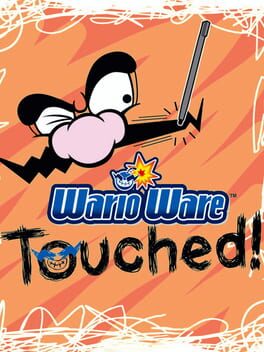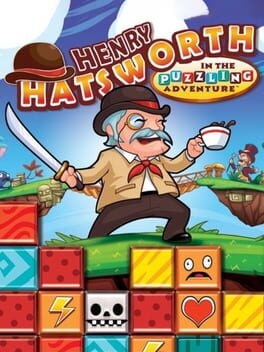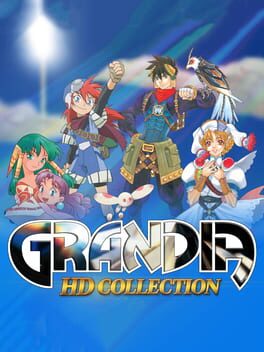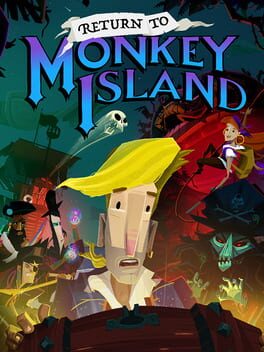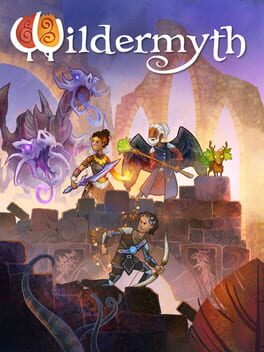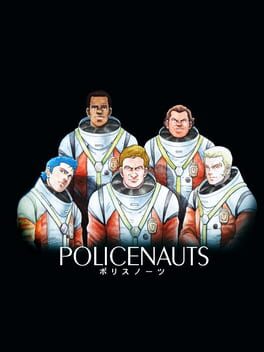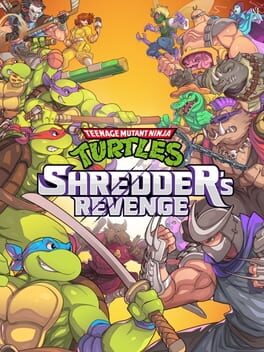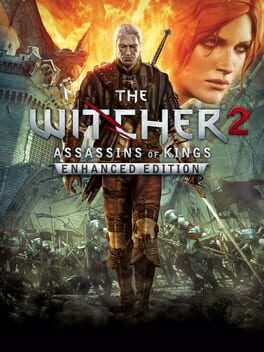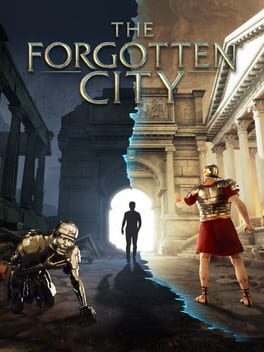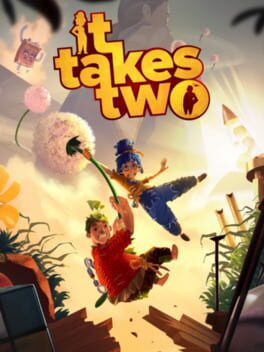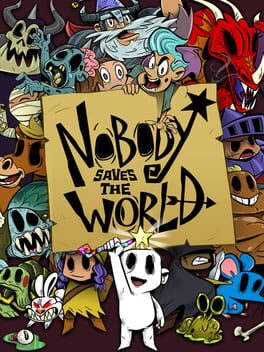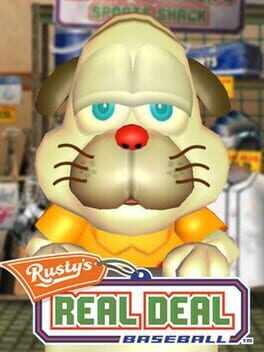big_douglas
2004
Henry Hatsworth has a lot going for it, from the lighthearted goofiness of its plot and characters to its unique gameplay. The game has the player freely alternating between the platforming adventure on the top screen and the deceptively simple match-three puzzle game on the lower screen, the events in both affecting one another. Your aim is to get Henry in one piece across the dangerous stages in pursuit of a fabled suit with magical abilities, each collected piece of which provides a new game mechanic necessary for the road ahead.
I found the bosses to be more challenging and well designed than I expected, while the platforming sections were nothing to write home about at best, at worst sort of frustrating in moments.
It’s a good execution of its concept all told, and one of the games that took the hardware most seriously in its core design.
I found the bosses to be more challenging and well designed than I expected, while the platforming sections were nothing to write home about at best, at worst sort of frustrating in moments.
It’s a good execution of its concept all told, and one of the games that took the hardware most seriously in its core design.
Though I want to review the games separately, I'll start with a word about this new HD remaster collection itself. The HD collection is kind of a mixed bag, while the upgraded fidelity and other enhancements make for a pleasing experience on modern screens, the performance can be confoundingly poor in some segments, and some strange audio bugs can detract from the experience. So while I can recommend this collection, it doesn't quite feel like the definitive updated version the series deserves, though it may very well be the one we'll have to live with for the time being.
Grandia
I never played this game back in the day, though I'm sure I would have loved it. It's a surprising title and not really what I expected, it's very goofy and lighthearted, seeming to emulate saturday morning anime in terms of its tone and story. The villagers in the first town could almost be Earthbound NPCs with their humorous and almost nonsensical dialogue.
The gameplay loop is alright at first, with a sea voyage early on adding variation and even a silly minigame. Over time though, this 50-hour experience plays the standard loop to exhaustion. The cycle is something like, enter a town, solve whatever odd malady has befallen the townsfoln by way of a nearby dungeon and battles, return to the town, then continue on your journey by way of a dungeon-like path.
Looking at each of these elements on their own, the bad definitely outweighs the good after a while. Within a town there are NPCs to talk to and houses to enter, not to mention your standard inn and equipment shop. The townsfolk and houses not connected to the story exist solely as flavor, though the lightly interactive environments are a nice touch.
A strange part of the gameplay loop are conversations had at meal times with your team, where you choose who to hear dialogue from. It's clearly meant to add some interactivity to what can be long stretches of dialogue, but it's simply clunky and unnecessary as you have to get all the same info out by the time you can end it anyway.
The dungeons start out pretty ok, but as the game progresses the design gets worse and worse, to the point where some dungeons are just miserable experiences to traverse, or just boring and poorly executed. Couple this with the fact that the powerful items you use to upgrade are often found by meticulous exploration of these spaces, this was an area they really needed to nail down in order to succeed and they simply did not. There is a very wide variation in the environments though, which is a plus.
The combat is a big draw in this series. Using a turn-based system with a visual indication of when each character will make their move, the typical strategy of jrpg battles takes on a fun timing-based twist, allowing you to interrupt enemy attacks if you land an attack at just the right moment, or letting you get off a sweet area of effect attack if you catch multiple enemies crowding together at the right time. You also level up your skills by using them in combat, which is an interesting take on a mechanic. The equipment and systems to acquire skills are less excellent, but work alright.
The game is mostly fun and often genuinely hilarious, with a ton of heart and charm, especially in its beautiful animated sequences. A lot of effort was put into making this game something a fan could genuinely love, but taken as a whole it's too long and imperfect to sustain its initial appeal. I ended up calling it quits more than halfway through, but I'm glad I played it anyway.
Grandia II
If there's something that fans of the original would be happy about, it's how faithfully Grandia II kept pretty much every single aspect of the previous title intact while improving on it drastically. Ambitious and impressive 3D animation sequences emphasize the grand scope of the adventure, and if nothing else scratch a very specific nostalgia itch for jrpgs of this era. While the dungeon design isn't as adventurous as the first game, it's greatly improved overall and much less of a slog. The combat is even more fun and further refined compared to the original, with awesome and visually impressive animations for spells and special attacks which are a delight to anyone with a pulse and a love for jrpgs. The townfolk interactions are often a lot more boring due to the more serious nature of this game, though there are moments of humor throughout. If Grandia lives on as an important game, then Grandia II lives on as a game which proved the concept could do great things with the right approach. I loved this game when I played the PS2 port as a kid, and it's bound to live on as an all-time great jrpg.
Some unfortunate qualities of this collection though are namely the sound and performance. The game in some larger towns becomes almost a slideshow, with framerates making for a really rough time. The sound was often bugged as well, sometimes having battle sounds or music play well above the decibel level of all other sound, prompting me to scramble for my tv remote to turn it down. As I said earlier, it's easy to recommend this collection just the same.
Grandia
I never played this game back in the day, though I'm sure I would have loved it. It's a surprising title and not really what I expected, it's very goofy and lighthearted, seeming to emulate saturday morning anime in terms of its tone and story. The villagers in the first town could almost be Earthbound NPCs with their humorous and almost nonsensical dialogue.
The gameplay loop is alright at first, with a sea voyage early on adding variation and even a silly minigame. Over time though, this 50-hour experience plays the standard loop to exhaustion. The cycle is something like, enter a town, solve whatever odd malady has befallen the townsfoln by way of a nearby dungeon and battles, return to the town, then continue on your journey by way of a dungeon-like path.
Looking at each of these elements on their own, the bad definitely outweighs the good after a while. Within a town there are NPCs to talk to and houses to enter, not to mention your standard inn and equipment shop. The townsfolk and houses not connected to the story exist solely as flavor, though the lightly interactive environments are a nice touch.
A strange part of the gameplay loop are conversations had at meal times with your team, where you choose who to hear dialogue from. It's clearly meant to add some interactivity to what can be long stretches of dialogue, but it's simply clunky and unnecessary as you have to get all the same info out by the time you can end it anyway.
The dungeons start out pretty ok, but as the game progresses the design gets worse and worse, to the point where some dungeons are just miserable experiences to traverse, or just boring and poorly executed. Couple this with the fact that the powerful items you use to upgrade are often found by meticulous exploration of these spaces, this was an area they really needed to nail down in order to succeed and they simply did not. There is a very wide variation in the environments though, which is a plus.
The combat is a big draw in this series. Using a turn-based system with a visual indication of when each character will make their move, the typical strategy of jrpg battles takes on a fun timing-based twist, allowing you to interrupt enemy attacks if you land an attack at just the right moment, or letting you get off a sweet area of effect attack if you catch multiple enemies crowding together at the right time. You also level up your skills by using them in combat, which is an interesting take on a mechanic. The equipment and systems to acquire skills are less excellent, but work alright.
The game is mostly fun and often genuinely hilarious, with a ton of heart and charm, especially in its beautiful animated sequences. A lot of effort was put into making this game something a fan could genuinely love, but taken as a whole it's too long and imperfect to sustain its initial appeal. I ended up calling it quits more than halfway through, but I'm glad I played it anyway.
Grandia II
If there's something that fans of the original would be happy about, it's how faithfully Grandia II kept pretty much every single aspect of the previous title intact while improving on it drastically. Ambitious and impressive 3D animation sequences emphasize the grand scope of the adventure, and if nothing else scratch a very specific nostalgia itch for jrpgs of this era. While the dungeon design isn't as adventurous as the first game, it's greatly improved overall and much less of a slog. The combat is even more fun and further refined compared to the original, with awesome and visually impressive animations for spells and special attacks which are a delight to anyone with a pulse and a love for jrpgs. The townfolk interactions are often a lot more boring due to the more serious nature of this game, though there are moments of humor throughout. If Grandia lives on as an important game, then Grandia II lives on as a game which proved the concept could do great things with the right approach. I loved this game when I played the PS2 port as a kid, and it's bound to live on as an all-time great jrpg.
Some unfortunate qualities of this collection though are namely the sound and performance. The game in some larger towns becomes almost a slideshow, with framerates making for a really rough time. The sound was often bugged as well, sometimes having battle sounds or music play well above the decibel level of all other sound, prompting me to scramble for my tv remote to turn it down. As I said earlier, it's easy to recommend this collection just the same.
2019
Coming from Persona 4 Golden, the truly impressive thing about these games is how one isn't outright superior to the other, each having their own differences which aren't necessarily better or worse than the other.
P5R's most immediate strength though is in its superb presentation and art quality. Even just navigating simple menus is a treat for the eyes, with every screen having bespoke and snappy transition animations. The attention to detail and direction of cutscenes actross the whole game is outstanding and a testament to the quality they strive for in these games.
P5R's most immediate strength though is in its superb presentation and art quality. Even just navigating simple menus is a treat for the eyes, with every screen having bespoke and snappy transition animations. The attention to detail and direction of cutscenes actross the whole game is outstanding and a testament to the quality they strive for in these games.
1994
The strongest aspects to it are just how much it leans into charm and being unique, as well as using that charm as part of the gameplay design. As in, in order to find your way forward you're going to have to talk to everyone you can, which you're encouraged to do because the dialogues are so fun to read. There's a very sweet and emotional side to the game as well, and the ending sequence is an all-timer. Just lovely. Also the suspend/rewind/save state function on the Switch version is a great way to experience it, and allows you to bypass a lot of repetition and headaches.
The less good stuff is in how some enemies are pretty bs, and how certain mechanics required to advance involve a certain amount of lateral thinking in ways that only occur once in the game. So at times it feels like the game is really trying to sell you the official strategy guide. For instance, in the last fight it's only minorly hinted at that in order to beat the final boss you need to use a mechanic that until that point has been more or less useless to you. The game also has way too many items and it's not always clear which ones you're going to want to keep around and which you'll need to use the very clunky storage mechanic for. Undertale for instance, which was HEAVILY inspired by this game, solved that by giving you universal storage often throughout the game.
It's very good and feels like a completely realized vision, which is certainly rare in games.
The less good stuff is in how some enemies are pretty bs, and how certain mechanics required to advance involve a certain amount of lateral thinking in ways that only occur once in the game. So at times it feels like the game is really trying to sell you the official strategy guide. For instance, in the last fight it's only minorly hinted at that in order to beat the final boss you need to use a mechanic that until that point has been more or less useless to you. The game also has way too many items and it's not always clear which ones you're going to want to keep around and which you'll need to use the very clunky storage mechanic for. Undertale for instance, which was HEAVILY inspired by this game, solved that by giving you universal storage often throughout the game.
It's very good and feels like a completely realized vision, which is certainly rare in games.
Return to Monkey Island succeeds on the majority of fronts it needed to. It has good writing, great humor, fun and challenging puzzles which can require the series' mandatory amount of lateral thinking, and most importantly it has the soul of the original two games.
The music and sound design in general is great, and the art style, though overly plain in the very beginning area, is great and fits the game perfectly. I loved how LeChuck's ship looked. The hint system is also good, allowing you to get very mildly escalating hints, so if you feel completely stuck and just need the tiniest amount of prodding to move you along, the help is there.
The ending is somewhat controversial. I personally thought that the way it ends was great in terms of its thematic implications, however it was pretty abrupt. If it had been executed instead with a bit more fanfare then I might have gone with a higher rating.
To people like me who grew up with the games, I can easily recommend this one. And to people who have never played one of these games before, I can easily recommend playing the first two before this one, they still hold up to this day and even have modern versions with a few updated tweaks.
The music and sound design in general is great, and the art style, though overly plain in the very beginning area, is great and fits the game perfectly. I loved how LeChuck's ship looked. The hint system is also good, allowing you to get very mildly escalating hints, so if you feel completely stuck and just need the tiniest amount of prodding to move you along, the help is there.
The ending is somewhat controversial. I personally thought that the way it ends was great in terms of its thematic implications, however it was pretty abrupt. If it had been executed instead with a bit more fanfare then I might have gone with a higher rating.
To people like me who grew up with the games, I can easily recommend this one. And to people who have never played one of these games before, I can easily recommend playing the first two before this one, they still hold up to this day and even have modern versions with a few updated tweaks.
2019
Played through two campaigns on single player and I feel as though I've seen enough of it. Maybe it shines a bit more as a multiplayer game, but as a single player experience it's lacking. That said it's a very interesting and seamlessly executed concept regarding the content generation for the campaigns.
The combat is not very well executed. Which is not to say that it's bad, it's just too easy even on harder modes and though there are occasions to expand what your character can do, it never feels very robust or all that rewarding.
The storytelling is fine enough, but so many interactions with the characters end up with them all have the same Joss Whedon dialogue quip-per-minute personalities.
I hope to revisit this one day and get more out of it, as of now I don't regret buying it but I also am glad I got it at a steep discount.
The combat is not very well executed. Which is not to say that it's bad, it's just too easy even on harder modes and though there are occasions to expand what your character can do, it never feels very robust or all that rewarding.
The storytelling is fine enough, but so many interactions with the characters end up with them all have the same Joss Whedon dialogue quip-per-minute personalities.
I hope to revisit this one day and get more out of it, as of now I don't regret buying it but I also am glad I got it at a steep discount.
2021
1994
Policenauts takes a lot of the familiar contours of 80s/early 90s buddy cop action dramas and marries it with a somewhat cyberpunk space future setting that gives it an entirely unique character of its own. There's a lot of charm and humor to its story, and the details of its setting are expanded on and luxuriated in by Kojima who obviously put a lot of thought into what this sort of future could look like.
The point-and-click interface is the tool by which you investigate and converse, with other gameplay applications coming into use as the story progresses. Though it's mainly a visual novel of sorts, it alternates to shootout sequences (other console versions used Light Gun peripherals for these, which would have been awesome to experience) which have you try to kill the bad guy before your own health runs out.
A drawback of this game, which to some degree is an artifact of its time and place in the japanese computer game market of the early 90s, is the groping and molestation of the female characters which the game allows, but does not encourage, the player to do. There boob jiggle animations have their own credits, even.
It's an extremely unique and engaging game, with awesome animated sequences and inventive gameplay. I highly recommend emulating it with a translation if you can, and use a CRT shader as well to get the best visual experience. I'll be thinking about and referencing this game for a long time to come.
The point-and-click interface is the tool by which you investigate and converse, with other gameplay applications coming into use as the story progresses. Though it's mainly a visual novel of sorts, it alternates to shootout sequences (other console versions used Light Gun peripherals for these, which would have been awesome to experience) which have you try to kill the bad guy before your own health runs out.
A drawback of this game, which to some degree is an artifact of its time and place in the japanese computer game market of the early 90s, is the groping and molestation of the female characters which the game allows, but does not encourage, the player to do. There boob jiggle animations have their own credits, even.
It's an extremely unique and engaging game, with awesome animated sequences and inventive gameplay. I highly recommend emulating it with a translation if you can, and use a CRT shader as well to get the best visual experience. I'll be thinking about and referencing this game for a long time to come.
Shredder's Revenge is a dream of a game. Taking all the best parts of its predecessors and combining it with all the best experience and instincts of the decades of game design prowess the industry has attained since the original arcade game, Shredder's Revenge creates a clean experience of joy. Simple enough to pick up without much instruction, but with just enough depth to make a single player experience plenty challenging (with the right difficulty). The music rules, the fighting is fun, and the level design and flavor are an absolute blast.
While The Witcher 2 thankfully massively improves on the combat system from the first game, as well as just having enormously improved production quality in all areas, it also is in my opinion an unfortunate relic of its time just the same. The introduction before you're finally let off the leash echoes the trends of the era it was released in, where to be a big, serious, modern title games needed to try to shoehorn in cinematic, "interactive" experiences to go for a larger-than-life presentation. The execution on that was often not great, and that's the case here, too.
The good news is that this game was enormously improved upon in the following title while keeping much of the soul that CDPR already had down.
Witcher 2's impressive graphics will absolutely ensure that it stands the test of time far longer than the first one, it still looks great to this day. Really impressive what they were able to do with this.
The good news is that this game was enormously improved upon in the following title while keeping much of the soul that CDPR already had down.
Witcher 2's impressive graphics will absolutely ensure that it stands the test of time far longer than the first one, it still looks great to this day. Really impressive what they were able to do with this.
2021
2021
It Takes Two is a really odd experience. Production-wise, except for a shaky start, it's mostly great. There are many types of games and game mechanics represented, which allows the game to serve as an intro to gaming as a whole to the uninitiated.
What makes it hard to speak too positively of is the story that is central to the game. I think young people who haven't been in a serious adult relationship yet may find the story good or even just ok, but to a married adult man such as myself it's nonsense. The way the characters, who are already in the process of a divorce, speak to each other doesn't make any sense. They alternate wildly between encouragement, compliments, insults, frustration , and flirtation. The reasons they have for divorcing are all based on things which would have come up long, long before the process of divorce started. The climax therefore felt entirely unearned, and just uncomfortable.
It's a great game to play with a friend or partner, it's just not a well written one.
What makes it hard to speak too positively of is the story that is central to the game. I think young people who haven't been in a serious adult relationship yet may find the story good or even just ok, but to a married adult man such as myself it's nonsense. The way the characters, who are already in the process of a divorce, speak to each other doesn't make any sense. They alternate wildly between encouragement, compliments, insults, frustration , and flirtation. The reasons they have for divorcing are all based on things which would have come up long, long before the process of divorce started. The climax therefore felt entirely unearned, and just uncomfortable.
It's a great game to play with a friend or partner, it's just not a well written one.
It has a lot of smart design decisions that keep it fun and keep up the momentum so you always feel like you’re changing it up and progressing / accomplishing something. One small thing I will say is that I encountered bugs that got me stuck in the level geometry so I had to quit out, but the game’s save system is very generous so I never felt like I had lost much time to those occasional glitches.
A fun and funny free-to-play title that uses its humor and charm to get the player to pay real money for the games in it. The mini games and challenges vary in fun factor but I had a good time with the first two at least, which also make good use of the 3D funtionality in helping determine the speed and trajectory of the ball.
